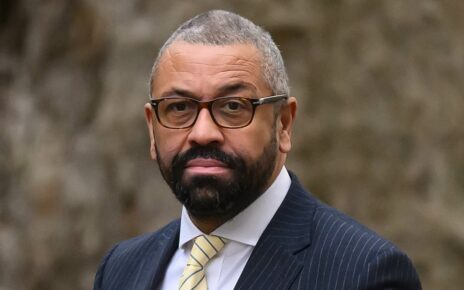Justice Stephen Breyer on Thursday invoked the nation’s epidemic of gun violence, including recent massacres in Uvalde, Texas, and Buffalo, New York, in a blistering dissent to the Supreme Court’s ruling Thursday that the Constitution provides a right to carry a gun outside the home.
“Many states have tried to address some of the dangers of gun violence just described by passing laws that limit, in various ways, who may purchase, carry, or use firearms of different kinds. The Court today severely burdens States’ efforts to do so,” Breyer wrote, in one of his last opinions for the high court before he formally retires following the current term.
The issue being ruled on “concerns the extent to which the Second Amendment prevents democratically elected officials from enacting laws to address the serious problem of gun violence,” he wrote.
“And yet the Court today purports to answer that question without discussing the nature or severity of that problem.”
Outlining that problem in his lengthy dissent to the majority’s ruling, Breyer referred to the slate of mass shootings in recent years — including at an entertainment district in Philadelphia this month, a series of spas near Atlanta in March 2021, an entertainment district in Dayton, Ohio, in 2019, the 2016 Pulse nightclub shooting in Orlando, Florida, the movie theater shooting in Aurora, Colorado, in 2012, the Sandy Hook Elementary School massacre in Newtown, Connecticut, in 2012, “and many many more.”
He referred to the number of people killed and injured in each shooting referenced.
“Since the start of this year alone (2022), there have already been 277 reported mass shootings—an average of more than one per day,” Breyer wrote. “Gun violence has now surpassed motor vehicle crashes as the leading cause of death among children and adolescents,” he added, noting that in 2020, federal data showed 45,222 Americans were killed by firearms.
He cited studies showing that, in the United States, as of 2017, there were about 120 firearms per 100 people.
“That is more guns per capita than in any other country in the world,” he wrote. “Unsurprisingly, the United States also suffers a disproportionately high rate of firearm-related deaths and injuries.”
Breyer explained that “mass shootings are just one part of the problem” and that “easy access to firearms can also make many other aspects of American life more dangerous,” including “the effect of guns on road rage,” armed protests, domestic disputes, interactions with police officers and suicides.
The references to mass shootings and other gun-related instances of violence were part of a broader argument designed to point out that the opinion Thursday left states without the needed recourse to adequately address gun violence.
Breyer wrote that he was “not simply saying that ‘guns are bad.’” Rather, he explained, he was defending the ability of states — each with populations with demographic qualities that correspond with disparate relationships with gun ownership and safety needs — “to address some of the dangers of gun violence.”
The majority decision, written by Justice Clarence Thomas, “invokes the Second Amendment to strike down a New York law regulating the public carriage of concealed handguns. In my view, that decision rests upon several serious mistakes,” he wrote. It “refuses to consider the government interests that justify a challenged gun regulation, regardless of how compelling those interests may be.”
“When courts interpret the Second Amendment, it is constitutionally proper, indeed often necessary, for them to consider the serious dangers and consequences of gun violence that lead States to regulate firearms,” Breyer explained.
“The primary difference between the Court’s view and mine is that I believe the Amendment allows States to take account of the serious problems posed by gun violence that I have just described,” he added. “I fear that the Court’s interpretation ignores these significant dangers and leaves States without the ability to address them.”
Breyer was joined in his dissent by Justices Elena Kagan and Sonia Sotomayor.
The court’s decision Thursday expands on a 2008 ruling that said the Second Amendment safeguards a person’s right to possess firearms at home for self-protection, finding that those rights now apply beyond the limits of homeowners’ property.
The case involved a New York law that required showing a special need to get a permit to carry a concealed handgun in public. The state bans carrying handguns openly, but it allows residents to apply for licenses to carry them concealed.
The law at issue said, however, that permits could be granted only to applicants who demonstrated some special need — a requirement that went beyond a general desire for self-protection. The court struck down the heightened requirement, which gun owners had argued made it virtually impossible for ordinary citizens to get the necessary license. The decision could affect the ability of state and local governments to impose a wide variety of firearms regulations.
Justice Samuel Alito filed a concurring majority opinion in which he responded directly to Breyer’s concerns — in particular, his references to mass shootings.
“It is hard to see what legitimate purpose can possibly be served by most of the dissent’s lengthy introductory section,” Alito wrote. “Why, for example, does the dissent think it is relevant to recount the mass shootings that have occurred in recent years?”
“Does the dissent think that laws like New York’s prevent or deter such atrocities? Will a person bent on carrying out a mass shooting be stopped if he knows that it is illegal to carry a handgun outside the home? And how does the dissent account for the fact that one of the mass shootings near the top of its list took place in Buffalo? The New York law at issue in this case obviously did not stop that perpetrator,” Alito added.
Source: Read Full Article



